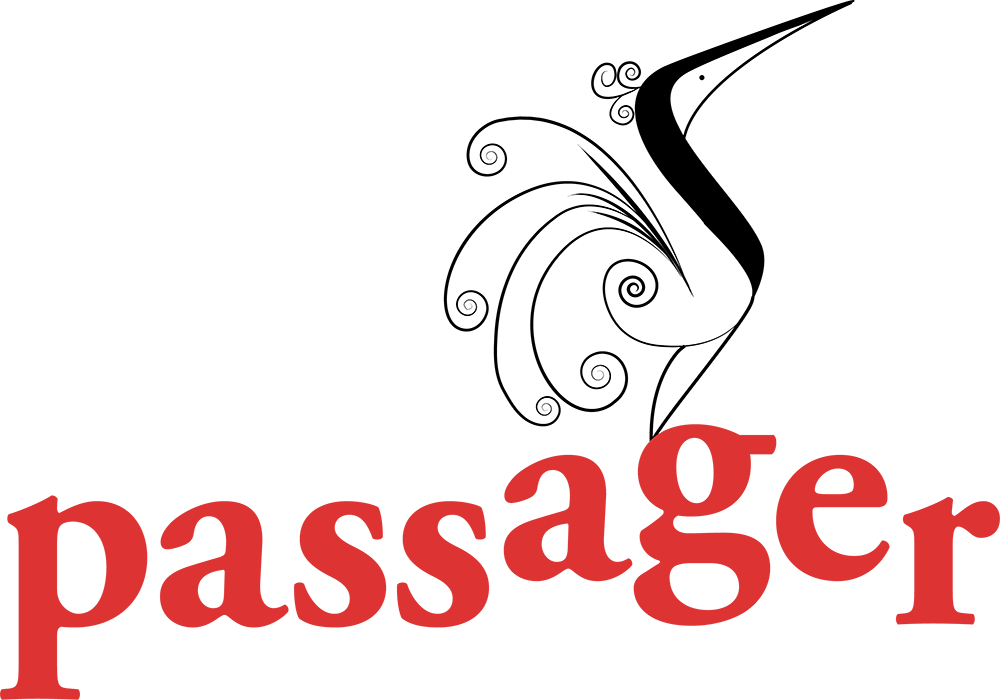Masks


Masks: literal and metaphorical, with pieces by Miriam Karmel, Art Cohen, Ruth Beker and Henry Morgenthau III. (Not pictured: Art Cohen and Ruth Beker.)
7 minutes
TRANSCRIPT
At the beginning of Passager’s current issue are these two quotes. The first is by Baltimore poet Bev Parsons: “I like my mask. I felt relieved to have the long-desired privacy I could never seem to find.” The second, by New York Times columnist David Brooks: “It seems important that we take off the psychological masks . . . We have more to fear from our inhibitions than from our vulnerabilities.”
They got me thinking about masks, literal and metaphorical.
Let’s start with the literal.
During the height of the Pandemic, Passager published a series of people’s journal entries about their lives. It was called Pandemic Diaries. You can still read them on Passager’s web site. Here’s one by Miriam Karmel from Minneapolis.
Fully vaccinated, I stepped out into the world yesterday. First stop, the hardware store, for a mousetrap. With some trepidation, I crossed the threshold after months of curbside delivery. What a relief to see everyone masked, except for Munster, the old shop dog, who nuzzled and sniffed with pleasure at my return. Next stop: the library, which reopened for minimal service last Tuesday. A masked librarian greeted me from behind plexiglass and laid out the rules. No settling down to read, though browsing the stacks was okay, and of course, checking out books. No problem, as I’d come to Grab and Go an online order . . . I returned to the car, under a blue sky, with the feeling we Minnesotans get in early spring, knowing that tomorrow it may snow, but yes, we’ve just about made it through winter.
And here’s another Pandemic Diaries entry by Baltimorean Art Cohen.
Remember the times we took for granted over a year ago when it was routine
to see lips and teeth situated between nose and chin on the faces of everyone we met?
In these days of masking it seems only yesterday, or rather maybe long long ago
before this Virus which now remains a part of our daily existence.
A new awareness of eyes and foreheads has come instead, insisting that we look for unique signs there which will guide us to know who we now see.
And we need to listen better to any person we may encounter as they talk to us
muffled from behind their mask and help us to know who they and we are.
Pandemic Diaries entries about masks by Miriam Karmel and Art Cohen. You can still send your Pandemic thoughts to Pandemic Diaries at Passager.
Passager published this next piece by Ruth Beker in its book Keeping Time: 150 Years of Journal Writing.
The first Gulf War began on January 16, 1991, and ended February 28, 1991. For Israelis, this was a very unusual war. Because of Saddam Hussein’s threats to send chemical and biological warheads into Israel if attacked by America, gas masks were distributed to everyone in the country as well as syringes for self-application of atropine against toxic poisoning. Though Israel had no direct involvement with this war, Iraq sent 39 SCUD missiles into the country day and night. Each time the sirens blew, all of Israel rushed to sit in their “safe rooms” where windows were sealed with plastic and duct tape, and floor rags were stuffed under the doors to keep out poisonous fumes. Everyone put on gas masks, turned on TV and radio, and waited for instructions.
We’ve been listening to pieces about literal masks. We’ll end with this about metaphorical masks: Henry Morgenthau’s “Ladyfingers.”
In our apartment
on Manhattan’s Upper West Side,
a safe haven for prosperous German Jews,
I was cushioned by my loving mother
who assured me I would grow up to be
anything I wanted to be,
even as my father’s anger spilled over me
like vitriol. He had his own problems,
trying to fulfill his immigrant father’s dreams.
When the time came
to step out of my cocoon,
I discovered a world
where Mother couldn’t protect me.
My first adventures were staged
a few blocks uptown
at the Birch Wathen kindergarten.
On the first day of classes,
boys and girls were separated.
The girls were handed
pastel-colored chiffon scarves
to wave as they gamboled about.
I grabbed one, and followed the girls,
prompting jeers from the boys.
“Hey Ladyfingers,” yelled Henry Furnald,
the best looking boy in the class.
“Hey Ladyfingers!”
He was one of the boys. I was not.
During the many years
from my uneasy childhood to old age,
I have lived with the dread of being
uncovered. I have built walls
to isolate myself, to hide behind,
to fear, and to hate myself.
Walls fabricated with stony
indifference toward being different.
Not wanting to be touched.
Wanting to touch.
Wanting to be caressed by the soft,
sensuous pressure of warm bath water.
I shiver as I step out
in my exposed nakedness.
“Lady Fingers” by Henry Morgenthau III from his book A Sunday in Purgatory.
To buy A Sunday in Purgatory or Keeping Time, to read or send work to “Pandemic Diaries,” or to subscribe to or learn more about Passager and its commitment to writers over 50, go to passagerbooks.com. You can download Burning Bright from Spotify, Apple and Google Podcasts, and various other podcast apps.
For Kendra, Mary, Christine, Rosanne, and the rest of the Passager staff, I’m Jon Shorr.



